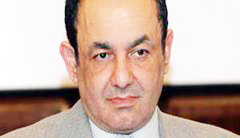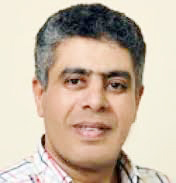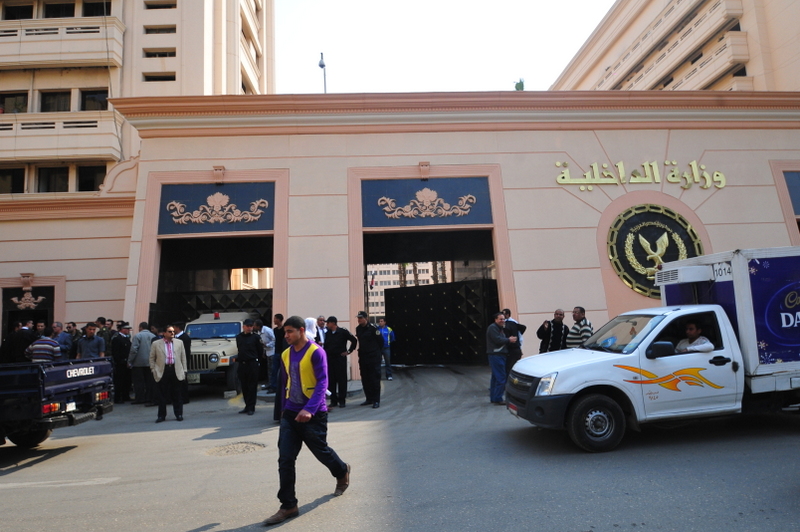Writers in different newspapers have praised the newly established national revolutionary bloc and its objectives to protect the 25 January Revolution demands. On another level some commentators called upon Egyptians to decide their own destiny, rather than waiting for a devoted leader to come save the country.
The national revolutionary movement bloc
Mohamed Salmawi
Al-Masry Al-Youm newspaper
Salmawi praises the announcement of a new “national revolutionary movement bloc” which aims at protecting the objectives of the 25 January uprising. Several revolutionary figures were criticised for not being able to unite themselves against the regime and for failing to create a solid entity that represents the 2011 revolution. The writer states that the announcement of the new bloc has built hope that the revolutionary concepts will not fade out as time goes by.
In the aftermath of the revolution, we found many political groups claiming that they have been the kernels of the nationwide protests. Many analysts would appear on TV shows asking where the revolution is going and whom it belongs to. Therefore, Salmawi was delighted to hear about the new bloc and its revolutionary members.
Former 6 April member Tareq El-Kholy has made statements about the new bloc asserting that one of its basic objectives is to “continue with the 25 January Revolution demands”. In the columnist’s viewpoint, the most important aspect in the movement is that it members have sketched a long-term plan for how to go about achieved unfulfilled demands.
To conclude, Salmawi calls upon all those who believe in the 2011 Revolution to give their support to the newly established revolutionary bloc.
The devoted, who will never come
Amr Al-Shobaki
Al-Masry Al-Youm newspaper
Although the political and social scene in Egypt is struck by disappointment from the continuing chaos throughout the country, Al-Shobaki believes that many citizens are waiting for a devoted person or a respectable institution to take the country out of the current crisis. Many think of the armed forces as the way out to the current crisis.
But Al-Shobaki disagrees, arguing that if the military came back to power, it will appear broken and unable to manage an even more chaotic situation, than that before Morsi’s presidency. Instead of waiting for a leader to suddenly emerge to help Egyptians move forward, the writer asks why each citizen does not think of what they can do themselves.
This awaited saviour will never be able to solve the community’s hardships alone. There is a shared duty that has to be considered by both ordinary citizens and government leaders, believes Al-Shobaki.
In the worst case scenario, if the armed forces returned to power, the writer states that it will not be able to fix all the destruction caused by the Muslim Brotherhood and will not also be successful in pushing the country down a genuine democratic path. Al-Shobaki calls upon the Egyptian people to look forward to their future and digest the fact that they write their own destiny. Therefore, it is better to react proactively instead of passively waiting for a devoted leader, who will never come.
For he who digs a hole for his brother
Emad Al-Din Hussein
Al-Shorouk newspaper
Hussein explores recent updates regarding the International Monetary Fund (IMF) loan and its relation to the current political situation. He recalls how the Muslim Brotherhood refused to accept the loan during Kamal Al-Ganzoury’s cabinet, and how today the National Salvation Front (NSF), representing the opposition, is making it difficult to get the loan approved.
The IMF required the acceptance of all political groups as a sign of consensus. But during Al-Ganzoury’s governance, the Muslim Brotherhood believed that they should not reward him for his performance at the time. Hussein, who believes that what goes around comes around, highlights that the Muslim Brotherhood are being placed in Al-Ganzoury’s place these days.
As the IMF requires that all political forces should express their approval towards the loan, we find that the NSF is imitating the Muslim Brotherhood’s earlier refusal.
The writer also makes two observations regarding the loan. First, the delay of upcoming parliamentary elections, which was supposed to take place in April, guarantees the tight economic situation will remain in place.
The other observation is that the Muslim Brotherhood must accept the conditions of the loan, which include increasing the prices of a number of commodities, which in turn will cause public outrage. Regardless of whoever is accepting or refusing the idea of the loan, Hussein believes that the conflict will likely harm most of the poor and underprivileged.





